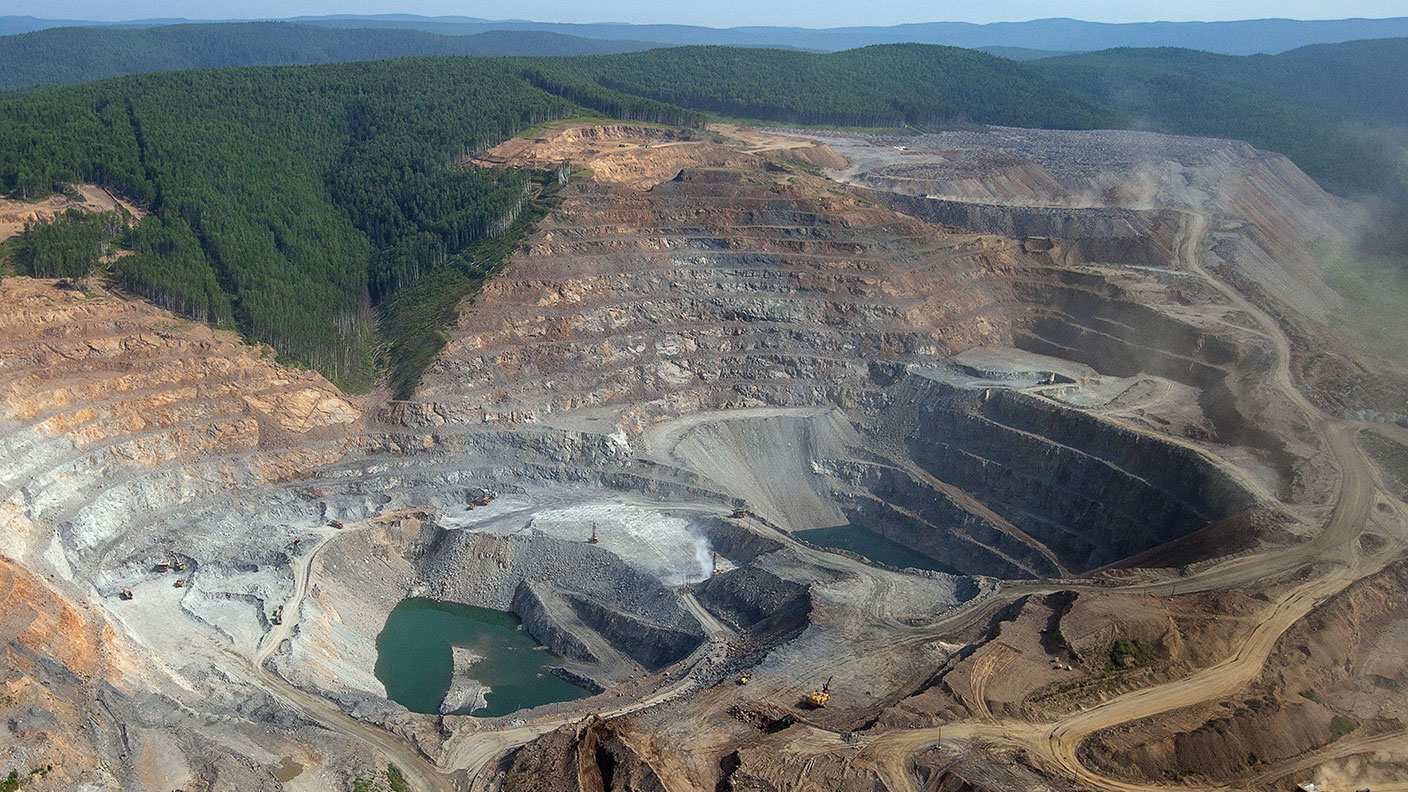Is this the end of the road for Russian gold miner Petropavlovsk?
Shares in Russian gold miner Petropavlovsk have collapsed 90% this year as sanctions have gutted its business model. Rupert Hargreaves asks if the company has a future.


Get the latest financial news, insights and expert analysis from our award-winning MoneyWeek team, to help you understand what really matters when it comes to your finances.
You are now subscribed
Your newsletter sign-up was successful
Want to add more newsletters?

Twice daily
MoneyWeek
Get the latest financial news, insights and expert analysis from our award-winning MoneyWeek team, to help you understand what really matters when it comes to your finances.

Four times a week
Look After My Bills
Sign up to our free money-saving newsletter, filled with the latest news and expert advice to help you find the best tips and deals for managing your bills. Start saving today!
Russian gold miner Petropavlovsk (LSE:POG) is one of the London market’s biggest casualties of the Russia-Ukraine war. Shares in the company have collapsed 90% this year as sanctions have gutted its business model. Worth more than £1bn a year ago, the enterprise is worth just £99m today.
It does not look as if the situation is going to get any better. Earlier this week, the firm was hit with a demand for $288m in cash from its main creditor, Gazprombank, which is demanding the immediate repayment of a $201m loan. The lender is also demanding that Petropavlovsk repays another $87m credit facility next week.
Sanctions block Petropavlovsk’s ability to continue as a going concern
Petropavlovsk’s business model effectively collapsed after the UK imposed sanctions on Gazprombank, one of Russia’s largest lenders, following the invasion of Ukraine. Not only is the lender one of the miner’s largest creditors, but it also buys and then sells all of Petropavlovsk’s gold production.
MoneyWeek
Subscribe to MoneyWeek today and get your first six magazine issues absolutely FREE

Sign up to Money Morning
Don't miss the latest investment and personal finances news, market analysis, plus money-saving tips with our free twice-daily newsletter
Don't miss the latest investment and personal finances news, market analysis, plus money-saving tips with our free twice-daily newsletter
Last year, the bank dealt with 450,000 ounces of gold for the producer. Sanctions mean that Petropavlovsk cannot sell its gold to the bank, or pay the interest due on its loans and credit facilities.
As well as its debts with Gazprombank, the producer also has a $304m convertible bond due in November.
The value of these bonds has fallen to 12 cents on the dollar, down from par at the beginning of the year, which really says more than I ever could about the company’s financial situation.
The market expects Petropavlovsk to default, and even in the best-case scenario, bond investors, who have a higher level of security over the company’s assets compared to ordinary stock holders, don’t expect to get more than $0.12 back for every $1 the group owes to creditors.
Even if a buyer is found, the value of the business is uncertain
Management has said that they are trying to find a buyer for Petropavlovsk’s mining assets, (the company’s equity was worth $721m (£554m) at the end of June) but with no operations outside Russia, even if a buyer is found it seems unlikely they will want to pay full price. What’s more, bond holders and other creditors, such as Gazprombank, will come ahead of shareholders in any bankruptcy reorganisation or liquidation.
Unfortunately, it looks as if this is the end of the road for the company. Even if it can somehow scrap together the cash to meet upcoming liabilities, there are plenty of other risks on the horizon.
Russia has a poor record of respecting shareholder and property rights, meaning there’s always going to be a risk of nationalisation. Then there’s the country’s human rights record – one of Petropavlovsk’s co-founders has been held in a Russian prison for more than a year without being charged.
So, while the stock might look cheap compared to the value of its assets after recent declines, with the company’s future hanging by a thread, investors should stay away.
Get the latest financial news, insights and expert analysis from our award-winning MoneyWeek team, to help you understand what really matters when it comes to your finances.

Rupert is the former deputy digital editor of MoneyWeek. He's an active investor and has always been fascinated by the world of business and investing. His style has been heavily influenced by US investors Warren Buffett and Philip Carret. He is always looking for high-quality growth opportunities trading at a reasonable price, preferring cash generative businesses with strong balance sheets over blue-sky growth stocks.
Rupert has written for many UK and international publications including the Motley Fool, Gurufocus and ValueWalk, aimed at a range of readers; from the first timers to experienced high-net-worth individuals. Rupert has also founded and managed several businesses, including the New York-based hedge fund newsletter, Hidden Value Stocks. He has written over 20 ebooks and appeared as an expert commentator on the BBC World Service.
-
 The most single-friendly areas to buy a property
The most single-friendly areas to buy a propertyThere can be a single premium when it comes to getting on the property ladder but Zoopla has identified parts of the UK that remain affordable if you aren’t coupled-up
-
 RICS: UK housing market showing signs of 'tentative recovery'
RICS: UK housing market showing signs of 'tentative recovery'RICS members are becoming less negative about property sales and house prices. What does the latest data mean for the property market?
-
 Halifax: House price slump continues as prices slide for the sixth consecutive month
Halifax: House price slump continues as prices slide for the sixth consecutive monthUK house prices fell again in September as buyers returned, but the slowdown was not as fast as anticipated, latest Halifax data shows. Where are house prices falling the most?
-
 Rents hit a record high - but is the opportunity for buy-to-let investors still strong?
Rents hit a record high - but is the opportunity for buy-to-let investors still strong?UK rent prices have hit a record high with the average hitting over £1,200 a month says Rightmove. Are there still opportunities in buy-to-let?
-
 Pension savers turn to gold investments
Pension savers turn to gold investmentsInvestors are racing to buy gold to protect their pensions from a stock market correction and high inflation, experts say
-
 Where to find the best returns from student accommodation
Where to find the best returns from student accommodationStudent accommodation can be a lucrative investment if you know where to look.
-
 The world’s best bargain stocks
The world’s best bargain stocksSearching for bargain stocks with Alec Cutler of the Orbis Global Balanced Fund, who tells Andrew Van Sickle which sectors are being overlooked.
-
 Revealed: the cheapest cities to own a home in Britain
Revealed: the cheapest cities to own a home in BritainNew research reveals the cheapest cities to own a home, taking account of mortgage payments, utility bills and council tax
-
 UK recession: How to protect your portfolio
UK recession: How to protect your portfolioAs the UK recession is confirmed, we look at ways to protect your wealth.
-
 Buy-to-let returns fall 59% amid higher mortgage rates
Buy-to-let returns fall 59% amid higher mortgage ratesBuy-to-let returns are slumping as the cost of borrowing spirals.